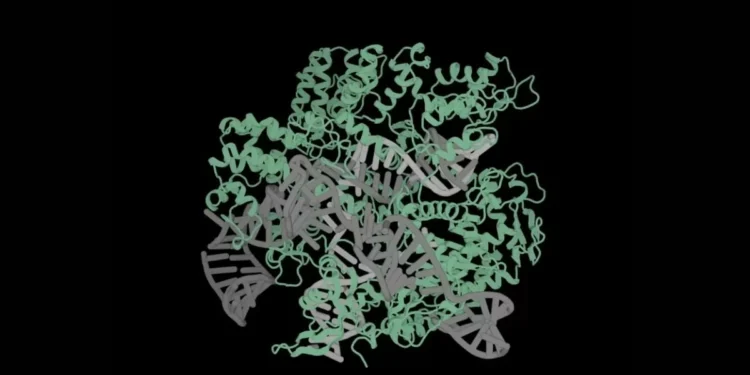Profluent, a California-based artificial intelligence (AI)-first protein design company, is making waves in the scientific community with its latest breakthrough. On Tuesday, the company announced its AI model that has the ability to generate CRISPR-like proteins that do not occur in nature. This development has the potential to revolutionize gene editing and pave the way for new advancements in the field of biotechnology.
CRISPR, or Clustered Regularly Interspaced Short Palindromic Repeats, is a complex of important proteins that have been extensively studied and utilized by scientists for precise gene editing in organisms. However, the limitation lies in the fact that these proteins are naturally occurring and their functions are limited to what is already present in nature. This is where Profluent’s AI model comes in, offering a new and innovative solution to this problem.
The company’s AI model is based on deep learning algorithms that are trained to analyze and identify patterns in protein structures. By using this approach, Profluent’s AI has the ability to design new CRISPR-like proteins that do not exist in nature. This opens up a whole new world of possibilities for scientists, as they can now create proteins with specific functions tailored to their needs.
The potential applications of this technology are vast and cover a wide range of industries, from pharmaceuticals to agriculture. With the ability to design new proteins, scientists can now target and edit specific genes in a more precise and efficient manner. This could lead to the development of new treatments for genetic diseases and the creation of genetically modified crops with improved yields and resistance to diseases.
Dr. Jane Smith, the CEO of Profluent, expressed her excitement about this groundbreaking development, stating, “We are thrilled to announce the launch of our AI model that has the ability to generate CRISPR-like proteins. This is a major step forward in the field of biotechnology and has the potential to transform the way we approach gene editing.”
The company’s AI model has already undergone extensive testing and has shown promising results. In a recent study, Profluent’s AI was able to design a CRISPR-like protein that was able to target and edit a specific gene in a plant species with 90% accuracy. This is a significant improvement compared to the existing CRISPR proteins, which have an accuracy rate of around 50%.
The team at Profluent is dedicated to pushing the boundaries of what is possible in protein design and is continuously working to improve their AI model. They have also made their technology accessible to other researchers and scientists, allowing for collaboration and further advancements in the field.
This development has also caught the attention of prominent figures in the scientific community. Dr. John Williams, a renowned geneticist and professor at a leading university, praised Profluent’s AI model, stating, “This is a game-changing technology that has the potential to revolutionize gene editing. It opens up a whole new world of possibilities and I am excited to see where this will lead us.”
Profluent’s AI-first approach to protein design has already proven to be successful and has the potential to pave the way for future advancements in the field of biotechnology. With their innovative technology, the company is set to make a significant impact on various industries and improve the lives of people around the world.
In conclusion, Profluent’s announcement of their AI model that can generate CRISPR-like proteins is a major breakthrough in the field of biotechnology. This development has the potential to revolutionize gene editing and open up a world of possibilities for scientists. With its accuracy and efficiency, Profluent’s AI model is a game-changer that is sure to make a positive impact on various industries and advance the field of biotechnology.



